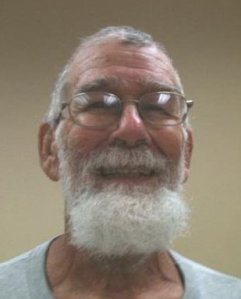 Norberto Gonzalez Claudio
Norberto Gonzalez Claudio
Norberto Gonzalez Claudio
#09864-000
Unit G Room 15
DWWDF
950 High Street
Central Fall, RI 02863
Born in Vega Baja on May 27, 1945, the second youngest of 6 siblings: 2 women, Mercedes and María Magdalena, and 3 men, Avelino, Orlando and Wilfredo. He lived in the neighborhood of Almirante Sur with his mother Cristina Claudio Narváez and his father Antonio González Vega until he was 7 years old. The family then moved to the neighborhood of Rio Abajo to “the González farm” (his family), where he stayed until he married Elda Santiago Pérez in 1979. Together they had 3 children: Elda Cristina, Susana and Carlos, and they also raised Elda’s sons Pedro and Ramón as their own.
During his childhood, he played and ran around like every child does. His father called him Captain. He always had fond memories of his father, but his mother was someone very special for him. Her serenity, firmness, strength, wisdom, the strength of a working woman that his mother embodied have been his inheritance and his pride. With her he learned love, sensitivity, and simplicity, as well as to not give in to the powerful.
He joined the struggle for social justice and the independence of Puerto Rico in the decade of the 60’s while he was a university student. He was a member of the Federation of Pro Independence Students (FUPI), the Pro Independence Movement (MPI) and the Puerto Rican Socialist Party (PSP). He got his political training in the Arecibo region. He was known in his town for selling the newspaper Claridad.
He had a post on a corner of Betances Street in the center of his town, and put on activities of protest music in the plaza. He actively participated in the Vega Baja’s Garbage Collectors strike in 1970, in the student strikes of 1970 and 1971 at the University of Puerto Rico, and in the protests against the mines in Adjuntas, where he camped out for several months.
He was in clandestinity since 1985 for defending his people, his homeland, his nation, and fighting for socialism because he thinks it is the just economic model for all peoples.
He is in solidarity with Latin American countries in their restorative struggles and with all countries that struggle for their freedom and for socialism. He fervently believes and struggles for patriotic unity. “We must unite on everything we can agree on. Our differences should be left for internal discussions within each organization,” he insists.
He is a poet. He writes of his family, life, the homeland, youth, and his eternal love: his wife, to whom, as if a premonition of his future, he dedicated since the very moment they got married Don Pablo Neruda’s The Letter on the Road.
Now, he is captured by the repressive forces of the northamerican government who seek to criminalize the struggle for the independence of our people and those who defend our Puerto Rican nation.

Pingback: Denver, July 4th: Monthly Political Prisoner letter writing night: Support OUR troops! « Denver Anarchist Black Cross
Pingback: Addition to Political Prisoner Database: Norberto Gonzalez Claudio « Denver Anarchist Black Cross